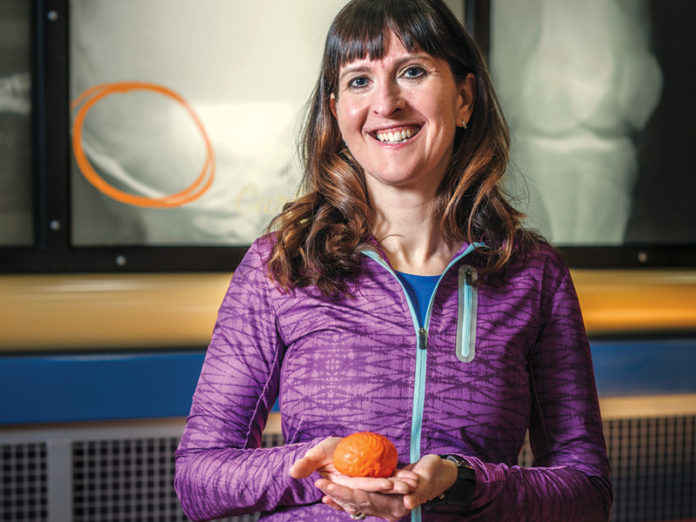
Before August 17, 2017, Amber Poliquin, 40, ran 50-kilometer and 50-mile races for fun. She took up running in 2009 as a way to lose weight and carve out time for herself after the birth of her third child.
This wife, mother of three, and teacher from Edmonton, AB, first worked towards breaking two hours in the half-marathon, then training for her first ultramarathon in 2015. One year later, she won her first race, the 125-kilometer Canadian Death Race in Grand Cache, AB.
That success was about to come to an abrupt halt. While training for Fat Dog 120 in 2017, a 120-mile race across British Columbia’s rugged Manning Park, Poliquin began to experience what she thought were flu symptoms.
“I had headaches, was feverish, had a stiff neck and was pretty tired,” Poliquin explains, Finally, feeling too fatigued to get out of the car to go grocery shopping and with her vision deteriorating, she knew something was horribly wrong. Fourteen hours later, Poliquin was diagnosed with a stroke.
“I think that because I was young, athletic, and female, and my stroke did not present with the common symptoms of face droop and speech problems, they thought my vision loss could be a migraine,” explains Poliquin.
For the first six months after her stroke, Poliquin worked to regain her left peripheral vision while also managing the extreme fatigue the stroke had caused. In addition, a right sacroiliac joint injury prevented her from immediately jumping back into running, so she replaced her miles on the trail with pool running.
As a result of the stroke, Poliquin withdrew from Fat Dog 120 in 2017 but knew she had to return to the race. During her recovery, however, she learned about Dr. Glen Jickling, a neurologist at the University of Alberta Hospital in Edmonton who is developing a rapid blood test that can diagnose stroke within minutes.
Inspired, Poliquin set about raising money and aims to raise $1,000 for every mile of the race—Fat Dog 120, of course—for a total of $120,000 for Dr. Jickling’s research.
To prepare for the race, Poliquin has been running and weight training under the guidance of her coach, Maxx Antush. At her peak, Poliquin will be running 100 miles per week.
“I would love to run for those who can’t, and to finish the race strong,” she says.
To donate or learn more about Poliquin’s initiative, visit www.stridesforstroke.com.
















